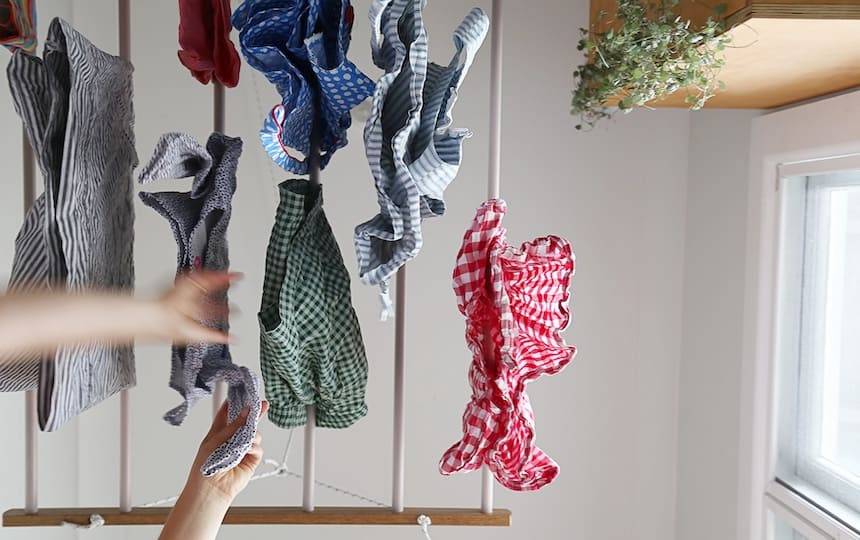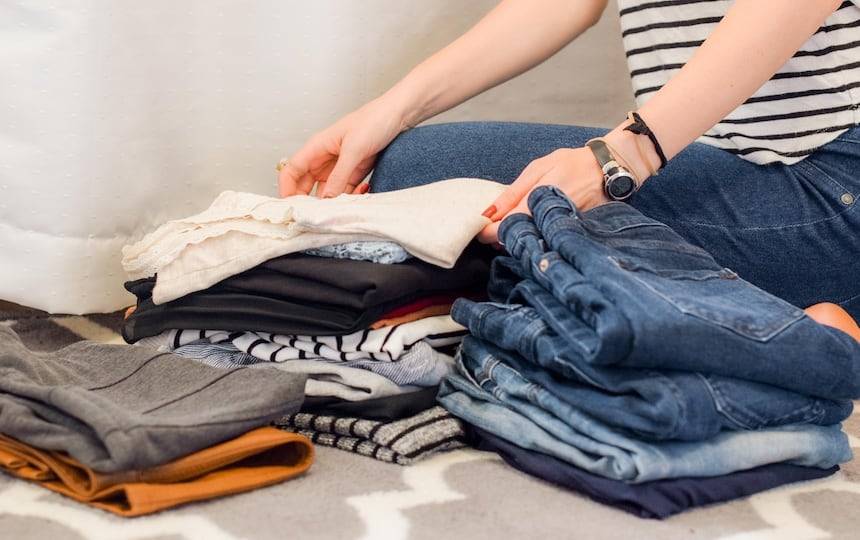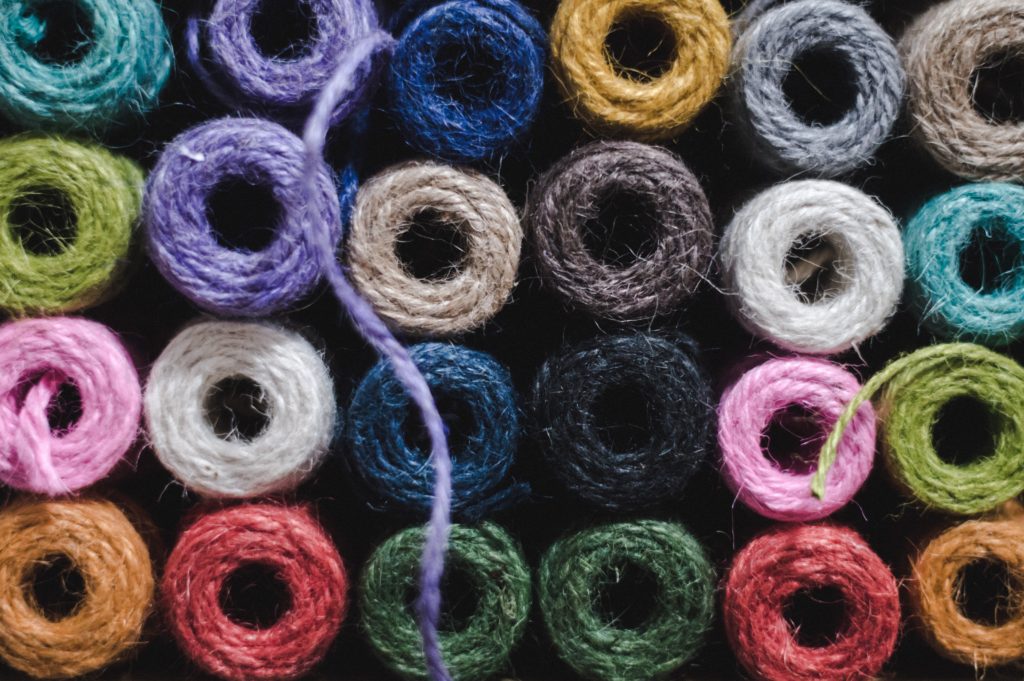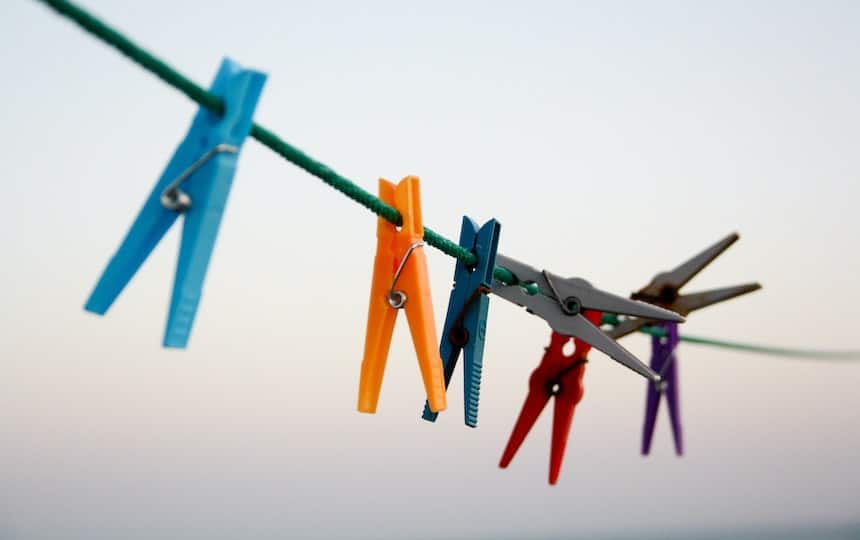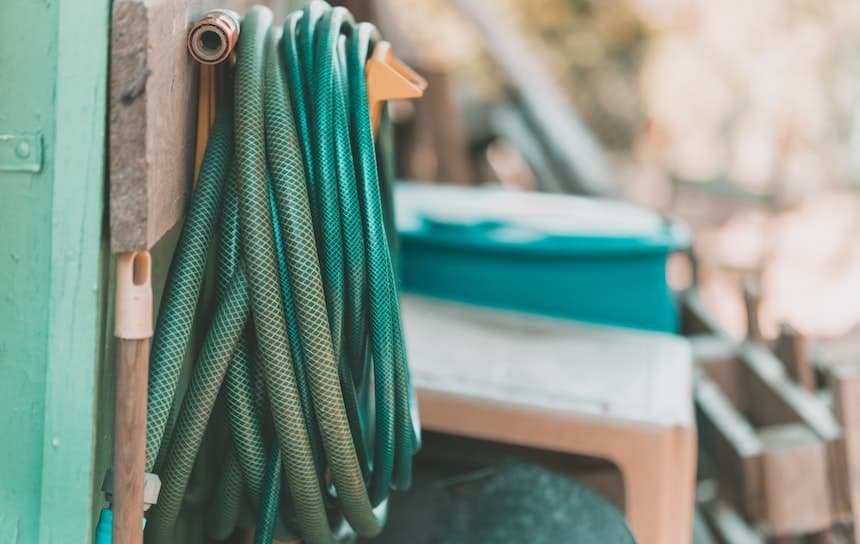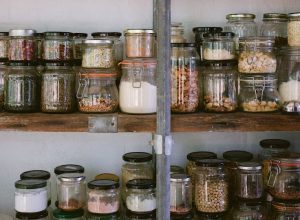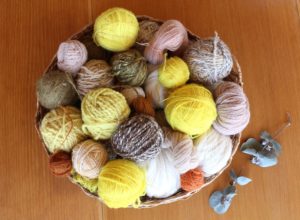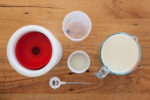Eliminate plastic pollution from your greywater with these five tips.
The war on waste to rid our lives of plastic pollution is well underway. But many of us are only just starting to come to grips with the frightening reality of the microfibre plastic pollution crisis from clothing.
Devastatingly, every time you wash clothes they shed microfibres. These usually bypass waste treatment plants and end up in the ocean. This isn’t a long-term problem with natural fibres like cotton and wool. But when you consider than the majority of your clothes contain plastic fibres in one form or another, the magnitude of the crisis is somewhat overwhelming.
But there are solutions. Here are five simple steps to get you on your way to cleaning up your laundry of plastic pollution.
1. Know your plastic pollution
In order to have a war on your washing waste, you’ve got to know the main suspects you’re up against.
So much of our clothing today includes plastic. Even many items we think of as “natural” are often in fact a blend. Common fibre inclusions like spandex are added to give a garment more stretch. Items like socks routinely have nylon added to them in order to increase their durability. And almost all thread used in the garment industry is polyester these days, rather than the old-fashioned spun cotton.
“Natural” fibres like bamboo, viscose, modal, rayon and tencel are in fact synthetic fibres made of natural materials. The jury is out on whether or not they behave in the same way as petroleum-derived synthetics when released into the environment. There is some evidence that they do persist in a similar way.
The most common plastic pollution culprits to avoid in clothing are polyster, nylon, acrylic and spandex (aka elastine or trademarked as Lycra).
2. Wear natural fibres
Once you know your plastic pollutants you can start making clothing choices that avoid these synthetic fabrics. Natural fibres like wool, cotton, linen and silk are all great choices. Natural fabrics also have the added benefit of “breathing” better than most synthetics. So, you sweat less in them, resulting in the need to wash them less.
3. Wash less, wash gentler
Washing less, in cooler water and on a gentle cycle has many environmental benefits. These choices mean less wastage of water and electricity, but they also have an impact on microfibre release. The gentler and less abrasive your wash, the less microfibres will be dislodged from your clothes. And the longer your clothes will last.
Friends of the Earth UK also recommend filling your washing machine, and washing with a front loader to minimise shedding.
Most natural fibre clothes can easily be freshened up with a simple airing in the sun, meaning you need to wash them less than synthetics. Wool (my absolute favourite fibre) is a real wonder fibre that cleanses itself.
It’s naturally occurring oils means that wool works dirt and odours from its fibres. Woollens really only should be washed between seasons or to remove tough stains. At all other times a good airing will suffice.
4. Get a Guppyfriend bag or washball
Are you a renter, or don’t have the cash to splash out on a full greywater system and filter? Then a Guppyfriend bag or wash ball is a great investment. Neither completely eliminates plastic microfibres from your greywater output, but they can significantly reduce it.
Many advocates also suggest that they are a reminder of the impact our clothes have on the environment and are helping to change consumer choices.
5. Install a greywater system/filter
The ultimate way to get your microplastic waste to bypass the ocean is to install a greywater system and invest in a top-notch filter.
It’s unclear whether or not filters are able to remove all microfibres from your greywater. But diverting this water into your property rather than sewerage means any contaminants from your home will stay there rather than heading into the ocean.

